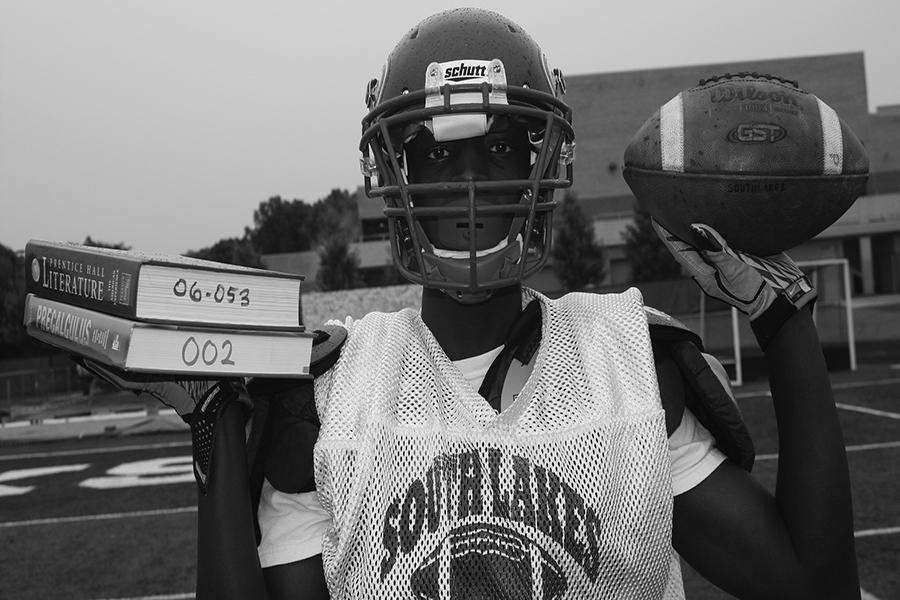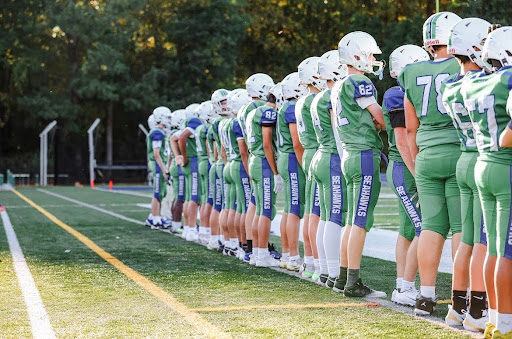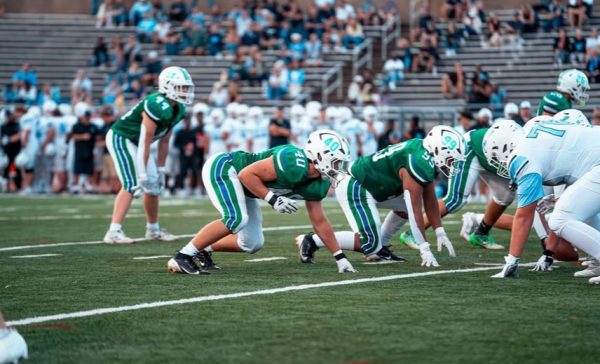Balancing act
Student-athletes learn to manage demands of sports and studies
Eight hours at school. Three hours at practice. One to four hours of homework.
And there still has to be time to eat and sleep.
This is the schedule of student athletes, Monday through Friday, every week of the season.
According to Athletic Insight, an online journal of sports psychology, student athletes experience great levels of stress due to the dual demands of both school and athletics.
Freshman football coach Steven Brown works with his freshman athletes in order to prevent them from becoming overwhelmed due to strains brought on by both football and school. “
A student athlete, of course, is a student first and an athlete second,” Brown said. “Being a freshman and starting high school is hard, so it is my job as a coach to help them understand how they can balance both without having to miss practice and still being able to adapt to high school.”
With the pressure to stay on top of school work and keep up with the team, many student athletes struggle to find a balance between the two time consuming commitments.
“Playing field hockey every day and attending school every day has definitely called for a lesson in time management,” senior Brooke Dempster said. “I’ve played field hockey since freshman year, so I have pretty much learned how to balance school and sports. But I still do stress out at times.”
Although research suggests that exercise can reduce stress, studies also suggest that athletic participation itself can become an additional stressor due to the amount of time involvement and increasing academic demands.
“I decided not to do a sport in the fall so I could focus on school so I could have good grades before basketball season started,” sophomore Louie Boyum said. “Last year it really helped me because basketball took up a lot of my time, and I wanted some free time in the fall to balance it out.”
A study conducted by Elon University on student athletes found that a high stress level diminishes school performance and overall productivity.
“One could agree that student athletes feel stress the worst because not only do they go through the stress of a normal student, they also feel the stress from fans and coaches for whom they are performing,” Elon University student Quinton McCleod said. “Not only are they students, they are representatives for the athletic programs at the school.”
Assistant activities director and varsity girls soccer coach Mike Astudillo credits heightened student athlete stress to the continuing improvement of the school athletic program.
“The more competitive our teams are becoming requires more time to be spent at practice,” Astudillo said. “This is why more student athletes nowadays are getting more stressed over schoolwork.”
However, it is up to the individual teams to choose how to reduce the student athletes’ stress.
“Teams should decide whether or not to make accommodations toward school,” Astudillo said.
















